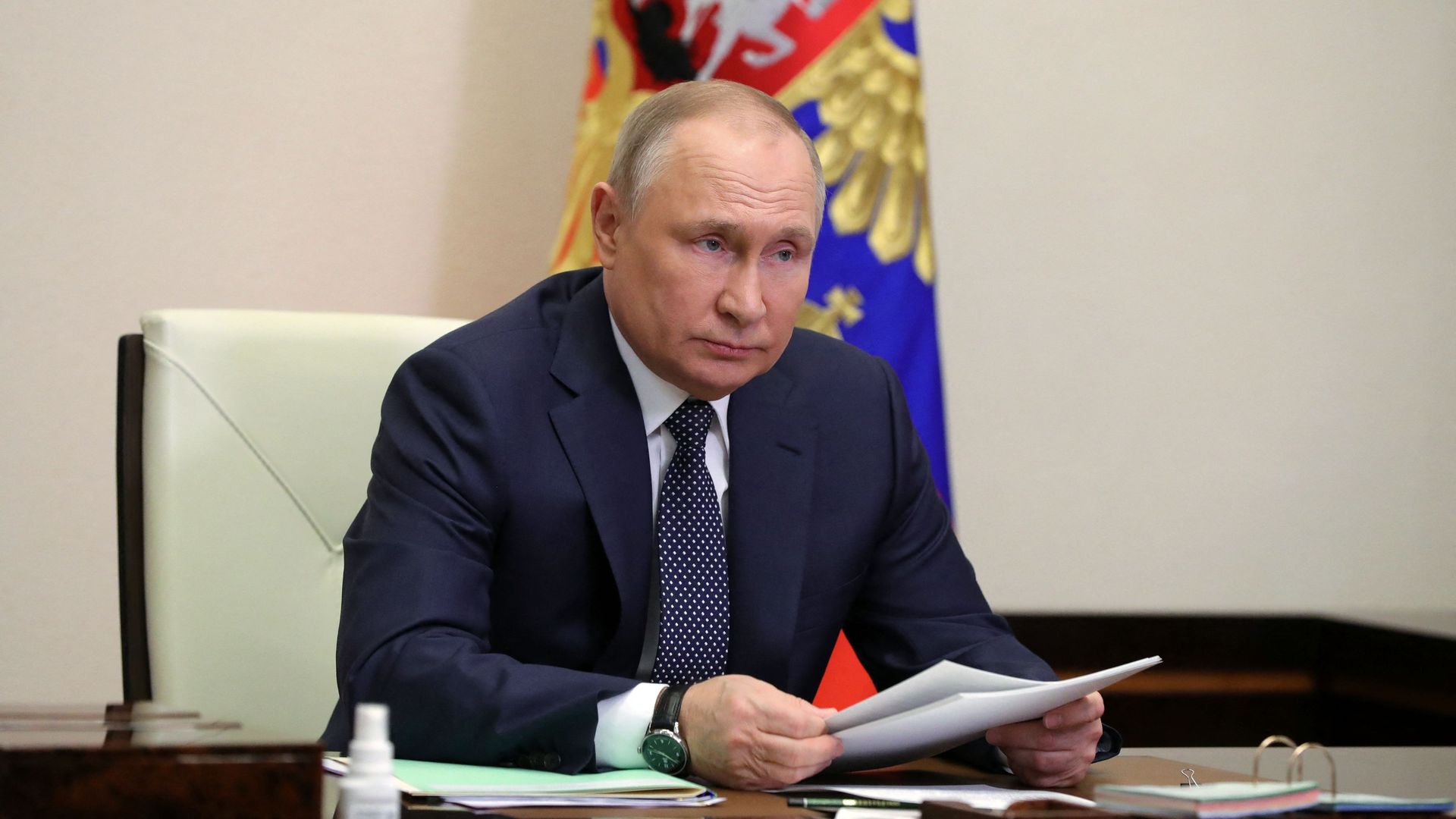Apr 9, 2022 - Economy
Major credit rating agency downgrades Russia to "selective default"
Add Axios as your preferred source to
see more of our stories on Google.

Mikhail Klimentyev/Sputnik/AFP via Getty Images
Add Axios as your preferred source to
see more of our stories on Google.

Mikhail Klimentyev/Sputnik/AFP via Getty Images